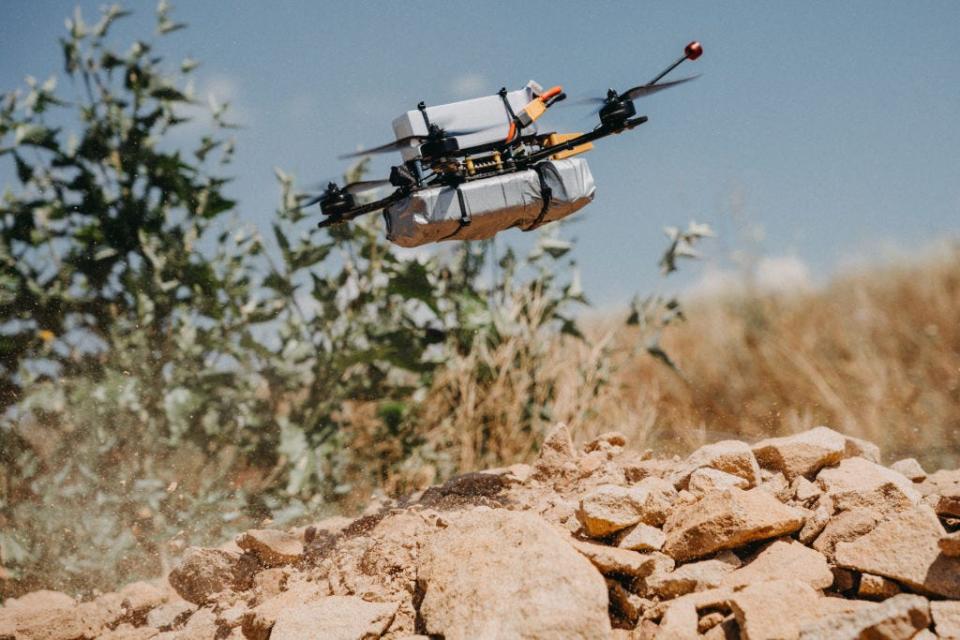Ukrainian soldiers say they've been having to abandon vehicles and hike for miles to the front lines because of exploding Russian drones
Ukrainian soldiers say they're moving forward on foot, abandoning vehicles due to drone threats.
Troops told The New York Times that Russian exploding drones were ever-present and deadly.
One brigade hiked for miles through rain and mud to the front line, an intelligence commander said.
Ukrainian soldiers say they're often being forced to move and fight on foot due to the ever-present threat of exploding drones.
They say Russia is turning up the heat, and no vehicle is safe from these devastating one-way attack drones. Russian forces have had similar problems.
Ukrainian soldiers told The New York Times that defending and supplying front-line forces was riskier than ever because of the increase in Russian first-person-view drone strikes.
These drones are used by both sides, tend to be very cheaply made using hobby-style drones equipped with an explosive, and are piloted by operators miles away from potential targets.
The drones can conduct one-way attacks resulting in devastating explosions or, in some cases, drop bombs on unsuspecting targets. A Ukrainian national guardsman told the Times that "it is extremely dangerous to go by car."
Men of his unit said that for the past few months, they had been leaving their armored vehicles behind and walking six miles to positions on the front line, the Times reported. "You can only go in on foot," the guardsman added.
Men of the 117th Brigade in the Zaporizhzhia region faced an unpleasant four-mile hike in the rain and mud, an intelligence commander told the Times. If they took their vehicles to drive ammunition or food to the front line, Russia's drones could attack from above.
That's not to say moving on foot is exactly safe, either. FPV drones have easily tracked and targeted soldiers on the ground, as documented by many videos and photos shared throughout the war.

Drones have significantly shaped the war in Ukraine, with both sides relying on unmanned aerial vehicles and unmanned surface vehicles to conduct reconnaissance and attacks.
For Ukraine, which is facing dwindling ammunition stockpiles and drying US aid, drones are a cheap and easy alternative to firing artillery. Should one malfunction due to jamming or get shot down, skilled operators, often flying the drones from positions far away from the front line, can simply send another one out.
And in some ways, drones can be more effective than artillery. They are like improvised explosive devices that chase down the targets, which can be anything from a single soldier to tanks.
Russia reaps similar benefits from its arsenal of drones, some of which range from loitering munitions built to military specifications to cheaper options built by private defense outfits. Ukraine, likewise, has state-backed efforts and private operations.
Soldiers told the Times that while Ukraine was the first to really capitalize on the impacts drones can have on the battlefield, Russia had recently copied their tactics at a greater scale and to a lethal effect.
FPV drones can be produced in large quantities for asymmetric warfare against more expensive targets such as tanks. They can have an outsize effect on the battlefield, threatening anyone and anything that moves — effectively turning sectors of the front line into a kind of no man's land for vehicles, which make easy and large targets.
Read the original article on Business Insider

